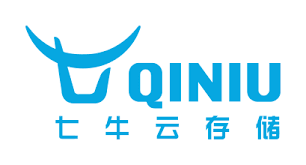Australian telco Telstra has made a strategic investment in Chinese cloud services provider Qiniu through its subsidiary Telstra Ventures. While the sum that changed hands was not disclosed, Telstra Ventures typically invests between AU$5M and AU$50M on businesses, according to information on its website.
As we noted in our earlier report early last year, cash-rich Telstra currently has about $5 billion in the bank. Through Telstra Ventures, the company is using its war chest to strengthen its core business in the region and further abroad, as well as investing in scores of strategic online and digital services.
In total, Telstra has made five venture investments in the region in just over a year, as well as acquiring Singapore and Hong Kong based Pacnet just before Christmas in 2014 for $700M. It later dropped the Pacnet brand and divested itself of various ISP assets in Singapore and Thailand, leaving itself with a strategic network of data centers and subsea cable assets in the region.
Eyes on the cloud
“The opportunities created by the digital explosion underway across Asia, particularly in the Chinese market, underpin this latest investment,” said Telstra in a press release that was sent to DCD. “With its unique, global-distributed architecture and bi-directional acceleration technology, Qiniu enables enterprise customers to collect, store and analyze huge amounts of data.”
While Telstra’s focus on acquiring companies in the region is plain, an unspoken aspect of its strategy appears to be to expand its breadth of services to include strong cloud capabilities.
Telstra’s revenue for “cloud” is currently folded within its Global Enterprise and Services group in its 2015 financial report, leaving little to tell the actual size of its cloud business at the moment. But with the public cloud services market alone in the mature Asia Pacific and Japan (APJ) region expected to grow to $11.5 billion 2018, there is ample room for growth in the cloud. And Telstra is certainly gearing up to be ready for it.
On this front, Qiniu offers various cloud-centric services, including online data storage, content distribution, and various specialized data processing services, according to its website (Chinese). The latter will work with images, audio, video, or any form of data, including for analysis or the purpose of data mining.
Moreover, the strategic investment in Qiniu is hardly Telstra’s first involving a company that dabbles in the cloud. Just last week, Telstra announced that it has acquired Australian cloud services company Kloud, which provides professional and managed services to enterprises looking to move to the cloud. At least one report has pegged the deal at AU$40M.
A slice of the cloud pie
As we noted in our report Cloud giants weigh into Asia, global cloud providers are looking to the Asia Pacific region. Many brand-name cloud providers have been hard at work establishing a presence in the region to tap into the growing cloud market, including the likes of Digital Ocean, Go Daddy and Rackspace.
Cloud behemoths such as Amazon Web Services (AWS), Google, and Microsoft have also been expanding or increasing their investments here. AWS South Korea went live earlier this month, and additional AWS regions are expected in India and in the Chinese autonomous region of Ningxia, China later this year.
On Google’s part, the opening of its first data centers in Singapore and Taiwan in 2013 was followed barely two years later with the news that both would expand. In Singapore, this involves building a second multi-story data center adjacent to its first one, and is an incredible testament to the rapid growth in demand for its services here.
Finally, even data center operators that had traditionally focused on colocation are also looking to deliver private cloud capabilities. CenturyLink in Singapore, for example, is aggressively positioning itself as a hybrid cloud provider that offers both colocation and its own cloud platform that customers can leverage to scale during peak seasons.
So while the eventual size of the cloud market remains to be seen, it is clear from the general consensus that it is expected to grow.
For now, at least one standard has originated from the region in a bid to place a yardstick to the different cloud platforms. Multi-Tier Cloud Security (MTCS) Standard for Singapore (SS 584) looks at a variety of factors including business and data controls to certify the security practices of cloud providers. Expect more cloud standards to come in the months and years ahead.


